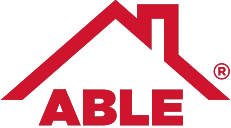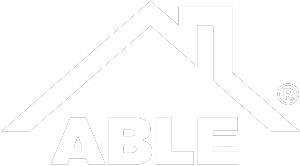 Did you know that the United States federal government started a roofing tax credit plan in 2009? If you are a homeowner with a Columbus roofing system, it is essential that you know all about this plan because it could save you a ton of money. And let’s face it… Who couldn’t use some extra cash (especially after all of that recent Columbus roofing work)?
Did you know that the United States federal government started a roofing tax credit plan in 2009? If you are a homeowner with a Columbus roofing system, it is essential that you know all about this plan because it could save you a ton of money. And let’s face it… Who couldn’t use some extra cash (especially after all of that recent Columbus roofing work)?
Read on to learn about this important plan, as well as other pertinent information on tax credits for your Columbus roofing system. You should keep in mind that a tax credit is even more valuable than a simple tax deduction because it is deducted from your tax owed, instead of being used to decrease your taxable income. Therefore, tax credits are a much bigger help in cutting the amount of tax you in which you owe.
A Two-Fold Plan: Create Jobs and Save the Environment
The roofing tax credit plan was introduced in 2009 for two main purposes. Closely following the stock market crash, the plan was mostly meant to stimulate the economy. This was achieved by creating incentives for homeowners to replace their roof and opt for high efficiency roofs. This would increase the demand for labor (such as Columbus roofers), thereby creating a plethora of jobs in the fields of manufacturing, roofing and construction. The second aim of the tax plan was to help the environment and cut back on carbon emissions. To do this, the government offered tax credits for homeowners who installed Energy Star products on their homes and Columbus roofing systems. In summary, the 2009 roofing tax credit plan was meant to create jobs and save the environment, while benefiting homeowners, whether they owned an apartment, home, condominium, mobile home or even a houseboat.
A Telescopic Look at Energy Star
Let’s talk more about Energy Star and how it relates to tax credits. In order to receive a tax credit, homeowners have to obey the Energy Star standards for their Columbus roofing system. The updated Columbus roofing materials had to be metal that had pigmented coating or asphalt with cooling granules. Other products that could get a homeowner a tax credit are listed by the Environmental Protection Agency, which can be accessed online. Many Columbus roofing manufacturers in the field are experts on this topic, so homeowners can also ask them to go over which Columbus roofing materials are acceptable for a tax credit. Please note that each homeowner will benefit from each Energy Star material differently. For instance, a cool roof that reflects the sun’s rays will obviously be more beneficial to a homeowner who resides in a warmer, sunnier location.
Show Me The Money
You are probably wondering how much money you can actually save via the Federal Roofing Tax Credit for Energy Efficiency. Well, it depends on how much you spent on the materials for your Columbus roofing system renovation. Columbus roofing installation and labor costs are not factored into the tax credit. A homeowner can legally receive a tax credit totaling up to 30 percent of the Columbus roofing material cost only, with a cap at $1,500. However, these numbers can vary each year and in different states, so it is important to do your proper research to find out how much you will actually save before making any important decisions on your Columbus roofing system.
What Else Can I Save Money On In My Home?
You will be happy to know that you are not just eligible for tax credits for your Columbus roofing system updates. You can receive tax credits for updating many areas of your home. Some examples of things you can update to receive tax credits are insulation, heating/cooling systems, water heaters, windows, doors, and even your stove. While it may be more expensive to upgrade to energy-efficient models, you will save a ton of money through tax credits. When you combine that with long-term energy savings, your investment will pay for itself and more, over time. Just be sure to do your research. Not all materials, items, and upgrades qualify for tax credits; and often times, additional costs, such as labor, are not factored in. To be extra careful before starting a project, especially something as major as your Columbus roofing system, learn about tax credits from multiple sources, including Energy Star, your Columbus roofing expert or roofing manufacturer, and your tax consultant. Always remember to save your receipts and signed statements from your Columbus roofing manufacturer, guaranteeing that certain products qualify for tax credits.
How Do I Apply for Tax Credits?
To apply for tax credits, you must fill out the appropriate IRS form, which will be submitted with your taxes for that year. On your 1040 form, you will enter the tax credit from the IRS form. Be sure to save all of your receipts and labor certification statements from your Columbus roofing contractor for any work you have had done on your home, because you never know when they’ll be needed.
Now that you know your tax facts, don’t put off much needed updates on your home any longer! Your new Columbus roofing system will thank you in the future.







